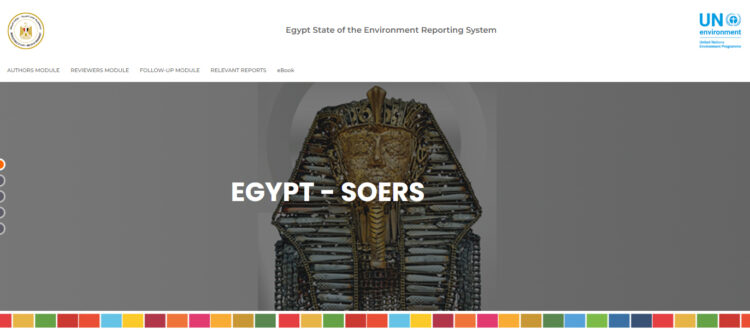Development of Regional Guidelines for preparation of National Environment Summaries (NES), training and preparation of online National State of Environment Report for Egypt
The project aims to develop regional guidelines for the preparation of National Environment Summaries (NES) and the online National State of Environment Report for Egypt. It involves various activities including a comprehensive review of the current UNSDCF and data requirements for UNCTs on the environmental aspects, the development of a comprehensive annotated outline of the guidelines, the preparation of draft guidelines, and revisions incorporating peer review comments. It also involves technical training and stakeholder consultations, the design of an online interactive SOE report, the development of a dedicated African interactive IEA web-based training platform, and the hosting of regional training.
Partners
UNEP ROA
Region / Country
Egypt
Objectives
- Strengthening national and regional environmental networking and reporting
- Enhancing UNEP engagement in the UNSDCF and national capacities for sharing up-to-date environmental information for decision support
Timeline
From – To 2023
Outcomes
- Enhanced UNEP engagement in the UNSDCF,
- Strengthened national capacities for sharing up-to-date environmental information for decision support,
- Developed regional guidelines for NES preparation.
Publications/website/portal
State of the environment report, SOE dedicated portal
https://cedarekmp.net/egysoe2020en/web2/
Relevance to SDGs
The outcomes of this project contribute directly to the achievement of several Sustainable Development Goals (SDGs). Strengthening national capacities for sharing up-to-date environmental information for decision support (SDG 17: Partnerships for the Goals), it promotes partnership, cooperation, and capacity-building on a global level. Moreover, by focusing on environmental networking and reporting, it supports efforts to take urgent action to combat climate change and its impacts (SDG 13: Climate Action), protect, restore, and promote sustainable use of terrestrial ecosystems (SDG 15: Life on Land), and conserve and sustainably use the oceans, seas and marine resources (SDG 14: Life Below Water). The principle of “Leave no one Behind” aligns with SDG 10: Reduced Inequalities. The project also indirectly supports all SDGs by enabling better decision-making based on accurate and timely environmental information.

